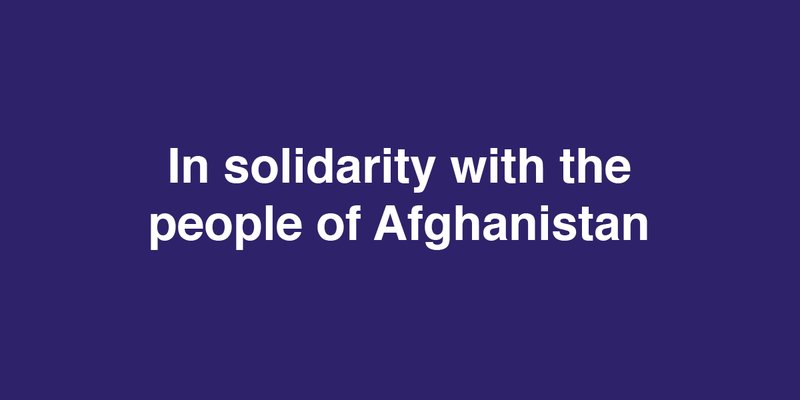To:
Minister for Foreign Affairs, Hon Marise Payne MP
Minister for Communications, Urban Infrastructure, Cities and the Arts, Hon Paul Fletcher MP Minister for Immigration, Citizenship, Migrant Services and Multicultural Affairs of Australia, Hon Alex Hawke MP
From:
The undersigned individuals, organisations and collectives of the Australian creative and cultural sector.
Re: Protection for Afghan artists, artisans, scholars and writers in Afghanistan and Australia.
On 15 August 2021, we watched in horror as the Taliban forcibly and illegally declared themselves the ruling body of Afghanistan. A return to the Taliban regime will have devastating and longstanding impacts for the people and the cultures of Afghanistan.
As the Taliban look to legitimise authority in the country, key minority groups are once again at extreme risk in an increasingly destablised and oppressive environment. For years the Taliban has targeted women and people from multiple marginalised communities including artists, artisans, scholars and writers, particularly from the Hazara minority group, LGBTQIA+ identities and people with disability.
The Taliban propagated an extremist monocultural ruling ideology and pose a severe threat to the diversity of cultural expressions that has been at the core of Afghanistan for generations. Their inhumane rule and continued presence focused on culturally and materially erasing the diversity and vitality of Afghan cultures. The Taliban destroyed and looted museums and galleries, libraries, universities, destroyed historical and cultural landmarks by force, banned music and silenced diversity of thought. All forms of creative and cultural expression vanished, disrupting the maintenance and sharing of Afghan cultures.
Despite this perilous environment, a new generation of Afghan artists and creatives has risen, and it is within the responsibility and capacity of the Australian Government to ensure their lives are protected. We don’t want to see the gains made during Australia’s two-decade long commitment to Afghanistan be inconsequential.
The Australian Government has been a party to the legally binding UNESCO Convention on the Protection and Promotion of the Diversity of Cultural Expressions. Australia has an obligation under the UNESCO Convention to develop policies and adopt measures to protect and promote the diversity of cultural expressions.
We acknowledge and value that Australia is home to the oldest living cultures on the planet, and its continued multicultural fabric has ensured that all Australians benefit from a pluralistic way of life. The priorities outlined in this letter seek to protect, preserve and sustain Afghan cultures by protecting the artists, artisans, scholars and writers in Afghanistan and those seeking asylum in Australia.
To acknowledge and justify the intent by Australia and other countries to build a more secure and democratic Afghanistan, we urge the following immediate humanitarian actions by the Australian Government:
- Prioritise protection of people whose lives are in immediate danger including artists, artisans, scholars and writers, particularly women, people from the persecuted Hazara community, LGBTQIA+ identities and persons with disability.
- Commit an additional humanitarian intake of at least 20,000 Afghan people, in line with major world democracies such as Canada, United States of America, and the United Kingdom, prioritising the above-listed persons.
- Prioritise new and extended options for Afghan nationals and asylum seekers in Australia on any temporary, bridging and temporary protection visas, and grant extensions and pathways to permanent protection visas and permanent residency status.
- Ensure provision of aid and humanitarian assistance to those with acute needs among the newly displaced population in Afghanistan with a focus on emergency shelter, food, water, sanitation and cash assistance.
We, the undersigned, Australian individuals and organisations that contribute to the vibrant cultural fabric of Australia, request these actions be immediately taken to protect vulnerable Afghan people and their immense contribution to world cultures and heritages.
We stand in solidarity with the people of Afghanistan.







